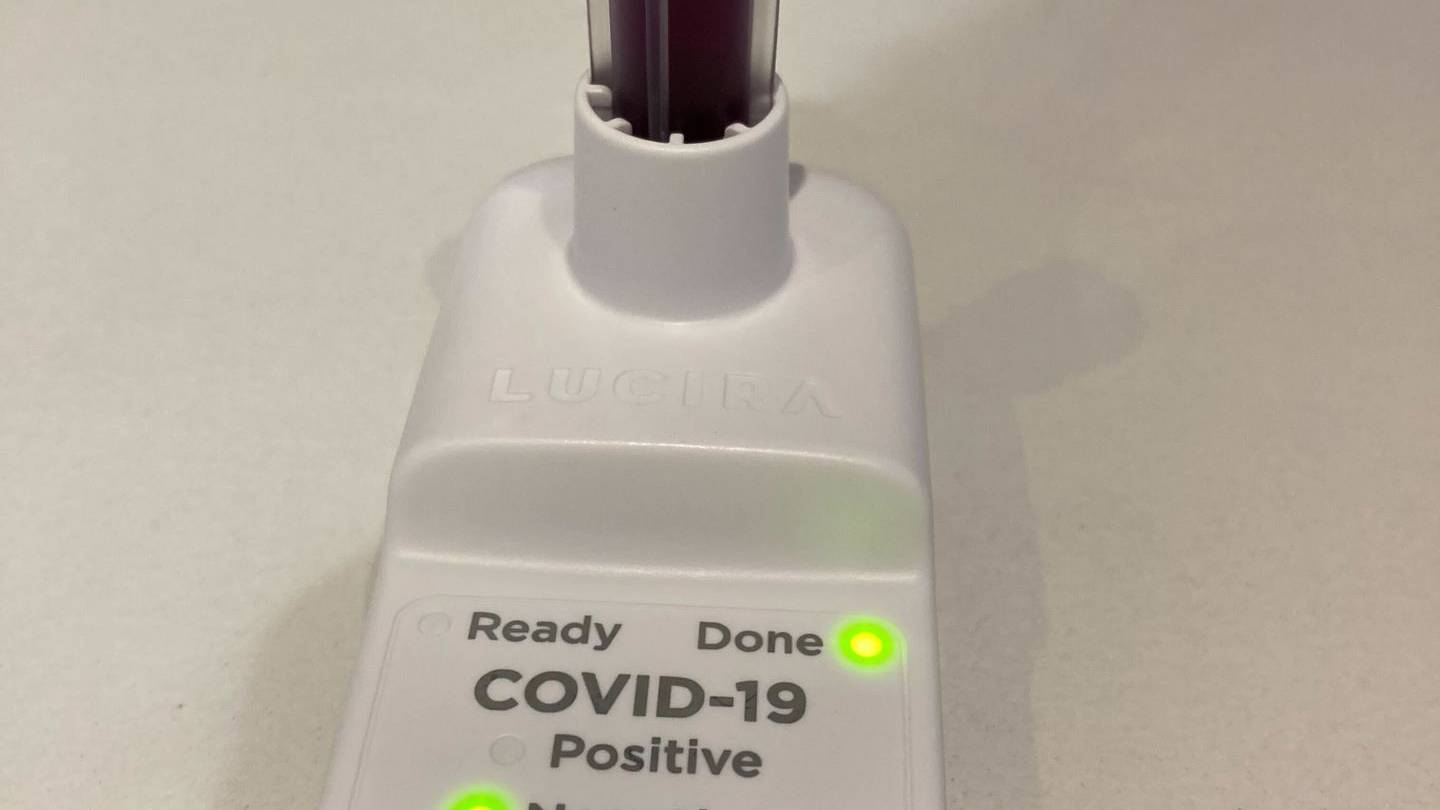
Lamp (loop-mediated isothermal amplification) tests can be self-administered like an RAT (rapid antigen test), but are much more accurate.
They will be trialled at the airport, initially limited to 30 Air NZ staff, and could eventually be used in hospitals, aged care and other sectors, Associate Health Minister Ayesha Verrall said this morning.
"The Lucira test is shown in clinical trials to be … close to the accuracy of PCR tests, but also the convenience of being a test you can purchase and then take with you to wherever you need it," she said at a press conference at Auckland Airport.
"You wouldn't need to run around a foreign city trying to find where you could buy a PCR test. It would be cheaper, and the airline would potentially be able to see the online verification of your test, and know your result was negative."
The lamp test involves a nasal swab which is placed in a battery-powered device. After around 30 minutes, the device shows a green light for a negative Covid-19 result or red light for positive. The result can then be uploaded to a website which verifies the result.
The tests have typically been sold for about $75. That is cheaper than a PCR (polymerase chain reaction) test, which costs between $200 and $250. RATs are cheaper, but less accurate.
The trial will run for three months and its cost will be shared by the Government and Air New Zealand.

"The purpose of this trial is to prove that the test can be easily self-administered, and that the Air New Zealand crew taking part can quickly identify the results," Verrall said.
"There are many wider benefits that Lamp tests could provide to New Zealanders. These include a self-test option with quick results for travellers, border workers, healthcare workers and critical employees prior to travel or commencing work."
Ministry of Health chief science adviser Ian Town said the Lucira device had been used for pre-departure testing by Air Canada, and been shown to be reliable and user-friendly.
Air New Zealand chief executive Greg Foran said the airline would "ideally" like Covid-19 testing to be removed from travel.
"But this [test] is a good insurance policy should we suddenly find ourselves in a different situation in the near term."
The Lamp technology would be "another tool in the toolbox".
New Zealand's border will for the first time in more than two years fully reopen to international visitors at midnight tonight.
From 11.59pm on Sunday, May 1, vaccinated travellers from visa-waiver countries such as the large tourist markets of the United Kingdom, United States, Japan, Germany, Korea and Singapore, and those with valid visitor visas, will be able to arrive.

Tourists will not need to isolate on arrival; they will be required to have had a pre-departure test, with two further rapid antigen tests on day 0/1 and 5/6.
It will be a "big day for us", Foran said, noting it had been 767 days since New Zealand shut its border to anyone without residency or citizenship in response to the Covid-19 pandemic.
The border has already been reopened to vaccinated Australians and some international students on April 12.
Foran said almost 1000 people will arrive on the first three flights, from Los Angeles, San Francisco and Fiji and expected visitor numbers to start seriously increasing in July.
"I think it's still reasonably early in this. What we've got are a lot of people who are keen to reconnect with family and friends and relatives.
"We're increasingly seeing business people starting to get out and wanting to reconnect. And my view is that when we get to July school holidays, I think we will see some pretty good travel not only domestically but internationally."
Air New Zealand had recalled about 800 pilots and cabin crew in anticipation of increased travel numbers.
"We've got quite a bit hiring spree going on at the moment."












